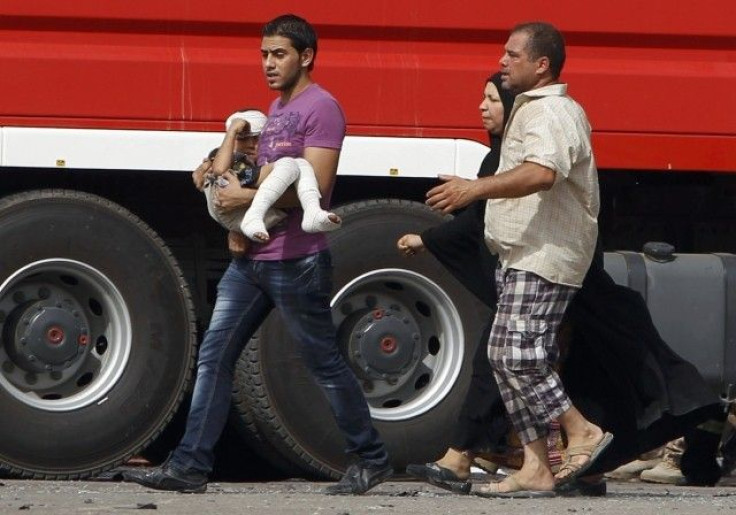Over 70 Killed In A Massive Wave Of Militant Attacks In Iraq

In a massive wave of coordinated bombings and shootings, more than 70 people were killed and several more injured across Iraq on Thursday.
The worst among the attacks was a car bomb blast outside a café in Baghdad's Zafraniya district that killed 27 people, as Iraqis were preparing to end their daily fast for the Islamic holy month of Ramadan, wire agencies reported.
Another bomb went off outside a busy ice cream store in the mainly Shi'ite district of Sadr City, shortly after the Zafraniya explosion, killing 16 and wounding 40, Reuters reported citing Iraqi authorities.
Two separate car explosions earlier in the day killed seven and wounded 37 more in the Shi'ite district of Husainiya and Taji, a town north of the Baghdad. Four car bombs exploded in the city of Kirkuk, killing two and wounding 18, the report said.
Six security personnel were killed in a militant shooting at a security checkpoint in the north of the capital, while overnight attacks on police checkpoints in the cities of Baquba and Falluja killed six guards and wounded 13, the report said.
No militant group has claimed responsibility for the attacks that underscored Iraq's struggle to contain the al Qaeda-led Sunni insurgency aimed at establishing a single, transnational Islamic state based on Sharia after the country was invaded in 2003.
Al Qaeda's local wing, the Islamic State of Iraq (ISI), and other Sunni Islamist groups are resurgent in Iraq, a fact demonstrated by a persistent wave of attacks every month since the last American troops left the soil in December.
According to Iraqi government statistics, released on Aug. 1, at least 325 people have been killed by militants, with July being the most violent month in two years.
The worst day of violence was July 23 when more than 100 people were killed in bomb and gun attacks across Iraq, reports said.
The ISI, which was weakened under assault from the U.S. troops and Sunni militias in 2007, warned last month that it had plans to launch a new offensive.
Security has been tightened in Baghdad ahead of the end of Ramadan next week, reported Reuters.
The U.S. Department of State observed, in a strategic assessment report on terrorism released on July 31, that the deaths of Osama bin Laden and several other key operatives "put the network on a path of decline that will be difficult to reverse."
The report said as the al Qaeda's core has gotten weaker, "we have seen the rise of affiliated groups around the world."
"Al-Qaeda in Iraq (AQI) suffered leadership losses and continued to fail to mobilize a Sunni community that turned decisively against it after the carnage in the previous decade," the report said.
"However, AQI is resilient, as noted by its intermittent high-profile attacks in country, and likely to carry out additional attacks into the foreseeable future. In fact, towards the end of 2011, AQI was believed to be extending its reach into Syria and seeking to exploit the popular uprising against the dictatorship of Bashar al-Asad."
© Copyright IBTimes 2024. All rights reserved.












